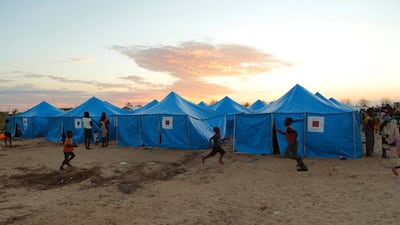Mozambique has confirmed its first death from cholera, less than three weeks after Cyclone Idai roared into its central provinces and left a trail of devastation.
The water-borne disease has spread across the central city of Beira, the country’s fourth-largest with a population of 500,000, with cases spiking to 517 in just days. The government has now set up emergency clinics across the city in a bid to deal with the outbreak.
The first five cases were announced last week but, as expected, the numbers affected by the diarrheal disease have risen sharply after the cyclone damaged the city’s water system after it made landfall on March 14.
Hurricane-like winds up to 170 kilometres-per-hour and mass flooding of towns and villages around Sofala Province have left 518 people dead in Mozambique.
With 259 deaths in Zimbabwe and 56 in Malawi, the three-nation death toll is more than 815. Authorities warn the tolls are preliminary as flood waters recede and reveal more bodies.
Some 900,000 cholera vaccine doses are set to arrive on Monday, according to the World Health Organisation.
Cholera is spread by contaminated water and food. It can kill within hours but is relatively easy to treat.
The response to the worst disaster to hit the southern hemisphere for decades has been international. The US military has airlifted food from South Africa, the UN is supplying food to the affected areas and both the UAE and the European Union have delivered millions in aid.
Beira's crowded, poor neighborhoods are especially at risk. Doctors Without Borders has said it is seeing some 200 likely cholera cases per day in the city, where relief workers are hurrying to restore the damaged water system and bring in additional medical assistance.
Hundreds of thousands of cyclone survivors in the southern African nation now live in squalid conditions in camps, schools or damaged homes. The risk of cholera has been heightened because of a lack of access to clean water and some of those displaced drink from contaminated wells or filthy, stagnant water.

